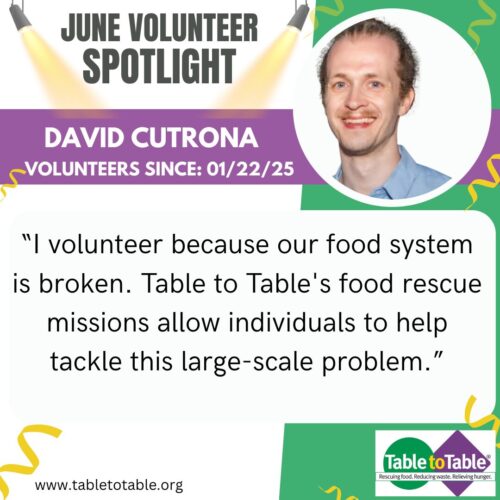
Blog
Junk Food How and Why to Avoid It
Is pizza junk food? There can be whole food ingredients involved but it’s so good can it possibly be good food too? Many of us have asked the same question.
According to Wikipedia, “Junk food is a pejorative term for food containing high levels of calories from sugar or fat with little protein, vitamins or minerals. Use of the term implies that a particular food has little “nutritional value” and contains excessive fat, sugar, salt, and calories.”
A good exercise, as we exit Ovarian and Prostate Cancer Awareness Month and enter Breast Cancer Awareness Month, might be a quick look at how junk food relates to cancer and obesity. After all, obesity has associated links to the following cancers:
- Esophagus
- Pancreas
- Colon and rectum
- Breast (after menopause)
- Endometrium (lining of the uterus)
- Kidney
- Thyroid
- Gallbladder
According to the Cancer.org website: “A projection of the future health and economic burden of obesity in 2030 estimated that continuation of existing trends in obesity will lead to about 500,000 additional cases of cancer in the United States by 2030. This analysis also found that if every adult reduced their BMI by 1 percent, which would be equivalent to a weight loss of roughly 1 kg (or 2.2 lbs) for an adult of average weight, this would prevent the increase in the number of cancer cases and actually result in the avoidance of about 100,000 new cases of cancer.”
Since we’re in the throes of pink ribbons, it’s worth noting the site points out that the obesity-breast cancer link is stronger for post-menopausal and Caucasian women. The excess weight leads to higher levels of estrogen for this group, increasing the breast cancer risk. It also includes a statement that weight loss increases the likelihood of prevention. So there is good news.
Where to start? We know junk food is bad for us and we should eliminate the empty calorie, low fiber, zero nutrition items from our shopping lists and dining out options as much as possible. The how to is a little trickier, so let’s look at ways to manage the grocery store and the menu.
- Start with Fruits and Veggies. Ever notice as you enter a grocery store it’s through the produce section? No? That may be the first change to make. It’s a great place to start your shopping. In fact, for the healthiest shopping trips, walk the perimeter of the store. Fresh produce, meats, and dairy are always around the edges and where you’ll be inspired to create healthy meals.
- Make a List. Meal planning for the week or a few days at a time and having a list of ingredients needed for those meals will help keep you on track and away from the processed and junk food.
- Avoid the Frozen Food Aisle. Unless you are stocking up on plain frozen veggies and fruits, avoid this aisle and its frozen meals, like pizza. They are loaded with sodium – often several days’ worth. Pre-make dinners and store them in the freezer for quick, healthy meal options. This infograph provides guidelines for food storage in the freezer, which is helpful since you’ll be eliminating preservatives in your home cooked meals.
- Bigger Isn’t Better. It might be a bargain for your wallet to super-size your order. But it’s no bargain for your health. Skipping the super-size should be a no-brainer. You increase the fat content, calories, sugar, and sodium the larger the size. You will be just as satisfied with a smaller portion since no, a larger portion is not going to keep you full all day. We’ve all fallen for that lie. (wink, wink)
- Soda Does Not Hydrate. It is important to stay hydrated for a number of health related reasons but make a smarter choice and select skim or low-fat milk, unsweetened iced tea, seltzer, or water. High-calorie, sugary beverages will add on the pounds. Do not choose diet soda, it confuses the body and may contribute to weight gain and to bladder cancer.
- Choose from the Light or Healthy Options. Most restaurants offer special sections and items on their menu that are prepared with fewer calories and fat.
- Say No to Sauce. Mayonnaise, tartar sauce, some spreads, sour cream, gravy, “special” sauces, and salad dressing all have additional fat and calories. If you must indulge, ask for the dressings on the side. Don’t use as much as the restaurant would add. The goal is to have sauce leftover. Salads are a healthy option, especially with a healthier dressing; try olive oil, a little sea salt, and lemon juice to enhance those greens.
These are some simple changes we can all make to live healthier lives. We have access to grocery stores, farmers’ markets, wholesale and discount clubs, and a variety of dining out options that include healthy choices and whole food ingredients. We have the means to make those decisions.
Low-income communities are challenged to make these changes and that leads to a higher incidence of cancer and other related health issues. These communities often exist in a food desert where there are few place to purchase healthy options and the breath of choices that most of us enjoy is limited. They work multiple jobs to cover expenses and lack the time it takes to shop and prepare a meal. Low-income families face a form of yo-yo dieting we don’t think about, where there are cycles of overeating when SNAP benefits are renewed each month and then deprivation at the end of the month as funds run out. Through our Mobile Market in the Ironbound section of Newark we are helping families with great healthy food choices that enable them to create nutritious meals each day. Table to Table has been providing vegetables, fruits and herbs to the 500+ families who attend the market each week from April through November. Learn more here. Oh, and in answer to the original question, when using the right ingredients, pizza is not junk food!
More From News
July 3, 2025
How Much Food Will Go Uneaten on the Fourth of July?
June 30, 2025
David Cutrona: Volunteer Spotlight
REAL PEOPLE, REAL STORIES.
June 24, 2025
Elementary School Students Honored
More students are working to end hunger and reduce food waste. Students at Godwin and Highland Elementary schools in Midland Park were...
June 19, 2025
Leonia Students Donate Hundreds of Pounds of Produce
Every little bit counts. Second-graders at Anna C. Scott Elementary School in Leonia held a fresh produce drive for Table to Table...
May 23, 2025
Saddle River Inn Named Among the 25 Most Essential Restaurants in North Jersey
Take your best shot at fighting hunger. Join us for the 9th Annual Table to Table Golf Classic at the Preakness Hills...













